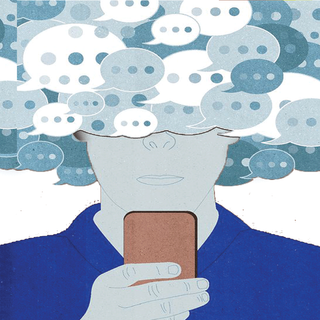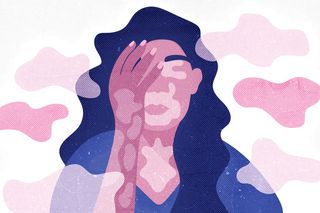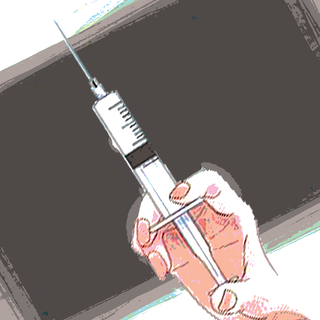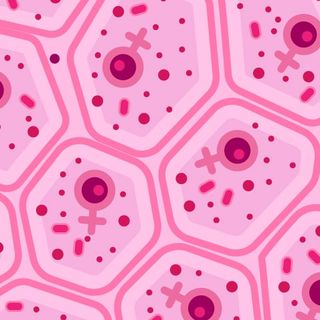
What’s It Like To Live With: Vitiligo
“I may never find a life partner, but I’m thankful I found myself again.”

What It’s Like to Live With explores the stories of people who see and experience every day a little differently.
My journey with vitiligo is about a decade old. I don’t regret the fact that I’m suffering from a condition that is incurable, but the fact that I’ve wasted most of these years hating myself because of it.
It started with a little dot on the top of my lip. I was 21 then. It had popped up right in the middle of a time when my friends and I had begun to go clubbing, were allowed vacations and dates. I thought it was just a salon procedure gone wrong and waited for a few days to subside, but it didn’t. My mother had started to get worried and took me to a dermatologist immediately. I was diagnosed with vitiligo, a disease that causes the loss of skin color in blotches. The more worrying part was not that I had it, but because nobody can predict the rate and extent of it in the beginning. I could get it on any body part; it could remain restricted, or spread over time.
At that point, I didn’t understand why my parents were reacting like I had a fatal disease. They were sad all the time, always worried, and I didn’t know what to do because it wasn’t restricting my movements and I wasn’t feeling sick from within. The only way it had started to affect me was the way I had begun to socialize.
Related on The Swaddle:
The Shame and Scandal of Indian Women’s Hair Follicles
At first, when it was restricted to some portions of my face and wasn’t very prominent, I met only those friends whom I was close to, and went out with them. But when it had started to spread to my hands, legs, feet and chest, I stopped meeting them, too. I had no way to get out of lectures in college or tuitions, so I did go for them, but reluctantly.
I started to wear clothes that would hide the blotches as much as possible. That meant, no shorts, skirts or open sandals, and only full sleeves. Obviously, it was evident that I was doing so because I wanted to hide my skin, because there was no way I could hide the patches on my face. I stopped playing football and basketball for college because the uniform was a pair of shorts and a t-shirt. I regret doing that to date. I stopped attending friends’ pool parties because the clothes I had chosen to wear would look inappropriate for that event.
Years started to pass, and facing new people felt like a challenge impossible to conquer. First there were interviews for my internships, then jobs and then meeting and facing new clients for a sales job I had chosen for myself.
I had seen more serious vitiligo patients with the extent of their problem worse than mine, but that didn’t make me think that I was lucky. I kept cursing myself, trying to get out of social situations as much as possible, even client meetings to avoid glares — and, most importantly, unsolicited advice on how I should’ve tried everything from herbal remedies and poojas, to skin-lightening treatments. I don’t remember a time when I was among new people and someone didn’t walk up to me to ask what and why it happened, and me being helpless because I really didn’t know or have the answers.
Related on The Swaddle:
Airlines’ Obsession With the Flight Attendant Look Obscures Crews’ Actual Work
It was when I turned 27 that I finally started to take control of the situation and get out of a self-pity and being-embarrassed-all-the-time mode. My parents had begun to get worried about who would marry me. I had decided that enough was enough: Nobody should have to look at how my skin was in order to get married; they would marry me if they saw my confidence and looked at my achievements. I had achieved what I set out to, but was still lacking in confidence. And that’s exactly what I started to work on.
I woke up each morning and told myself to accept it and embrace it, rather than try to hide it. I wore what I felt like — from shorts and skirts, to even swimsuits when I had to. I stopped putting makeup to hide the patches, but wore it only to feel good. I started showing up at events more and more, met more people and took charge of going out and doing more client meetings. I thought that was the only way to overcome my feelings of inhibition. It wasn’t about other people anymore, it was about me — and I was the only way I could help myself.
One of the best things I did was to tell my parents to stop looking for boys. I went on dates and told them I’d find people my way. I would say that the experience has been a bittersweet one. Some think it’s contagious and refuse to touch me; some others say they enjoy being with me but are scared of making a commitment. I may never find a life partner, but I’m thankful that I’ve found myself again.
This interview has been condensed and edited for clarity. As told to Anubhuti Matta.
Anubhuti Matta is an associate editor with The Swaddle. When not at work, she's busy pursuing kathak, reading books on and by women in the Middle East or making dresses out of Indian prints.
Related


FDA Approves Dengue Vaccine, But With Restrictions
